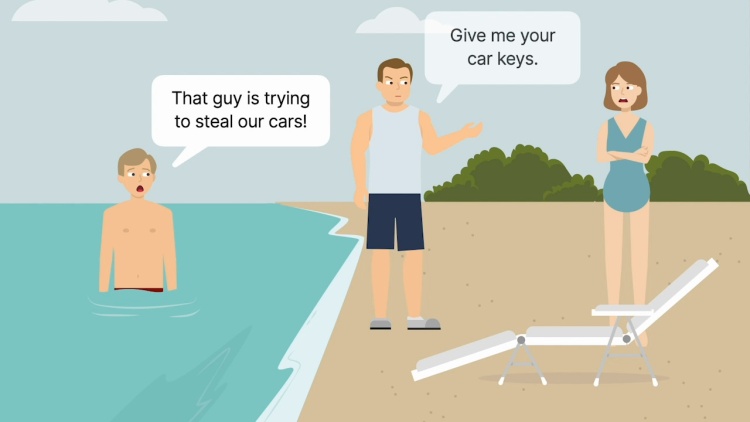United States v. Lake
United States Court of Appeals for the Third Circuit
150 F.3d 269 (1998)
- Written by Caroline Milne, JD
Facts
Lake (defendant) went to the beach at Little Magen’s Bay in St. Thomas and saw Milton Clarke sitting in the sand reading. Lake approached Clarke and asked if Clarke owned a white car parked near the beach in the parking lot. The parking lot was located at the top of a hill and was not visible from the beach. Clarke told Lake that he did own the white car, and Lake walked away. Lake returned, however, and asked Clarke if he could borrow the car. Clarke refused. Lake returned twice more, and when Clarke told Lake to leave him alone, Lake pulled out a gun and demanded Clarke’s car keys. Clarke told Lake he did not have the keys, and Lake walked Clarke out to the water. While Clarke was in the water, he saw his friend Pamela Croaker on the beach and called out to warn her. Lake then approached Croaker and demanded the keys to her car. When Croaker refused, the two tussled, and Lake held the gun to Croaker’s head. Croaker gave Lake the keys, and Lake walked up the path leading to the parking lot. Croaker and Clarke followed Lake after Clarke struggled to get out of the water, but by the time they got to the parking lot, Lake was driving away. At Lake’s trial, Croaker and Clarke testified that they were both very scared when they reached the parking lot. Croaker also testified she was in great fear after seeing Lake’s gun. Lake was convicted of using a gun during a crime of violence—in this case, carjacking. Lake appealed, arguing that he did not take Croaker’s car from the person or presence of Croaker, as required by the carjacking statute
Rule of Law
Issue
Holding and Reasoning (Alito, J.)
Dissent (Becker, C.J.)
What to do next…
Here's why 910,000 law students have relied on our case briefs:
- Written by law professors and practitioners, not other law students. 47,100 briefs, keyed to 997 casebooks. Top-notch customer support.
- The right amount of information, includes the facts, issues, rule of law, holding and reasoning, and any concurrences and dissents.
- Access in your classes, works on your mobile and tablet. Massive library of related video lessons and high quality multiple-choice questions.
- Easy to use, uniform format for every case brief. Written in plain English, not in legalese. Our briefs summarize and simplify; they don’t just repeat the court’s language.





